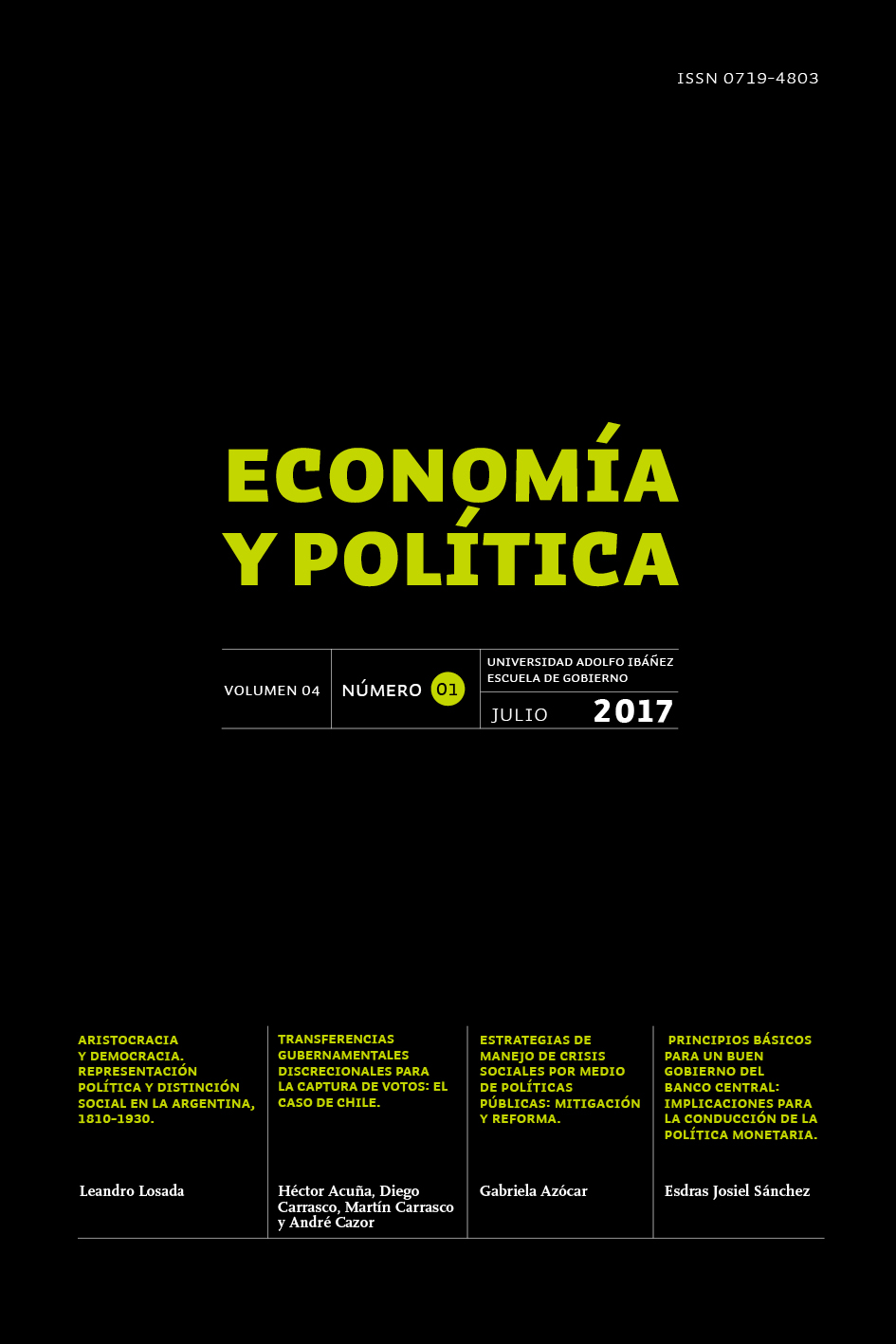Aristocracia y democracia. Representación política y distinción social en la Argentina, 1810-1930. Un ensayo de interpretación
DOI:
https://doi.org/10.15691/07194714.2017.001Palabras clave:
Elites, democracia, representación política, distinción social, igualdadResumen
Un aspecto notorio de la historia argentina es la carencia de legitimidad de sus elites. La historiografía ha tratado este problema destacando dos puntos: las tensiones internas de las elites y el igualitarismo de la sociedad argentina, uno de sus rasgos singulares en el contexto latinoamericano. En este artículo se propone otro argumento. Se plantea que las falencias de legitimación de las elites tuvieron como razón de fondo la manera en que se desplegó la construcción de ‘aristocracias naturales’, problema central de las sociedades modernas. A lo largo del siglo XIX, este proceso se dio a través de operaciones simbólicas y no mediante la representación política. Es decir, las formas en que se reflexionó sobre la representación política no ofrecieron fundamentaciones consistentes del papel de las elites en la sociedad democrática. Se argumenta, entonces, que este aspecto es importante para pensar la problemática historia de las elites en la Argentina. Y, a partir de ello, una clave para reflexionar sobre la sinuosa historia de su democracia.


